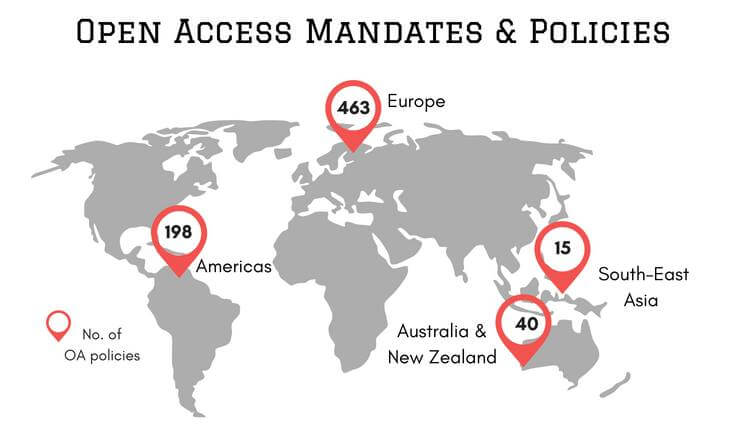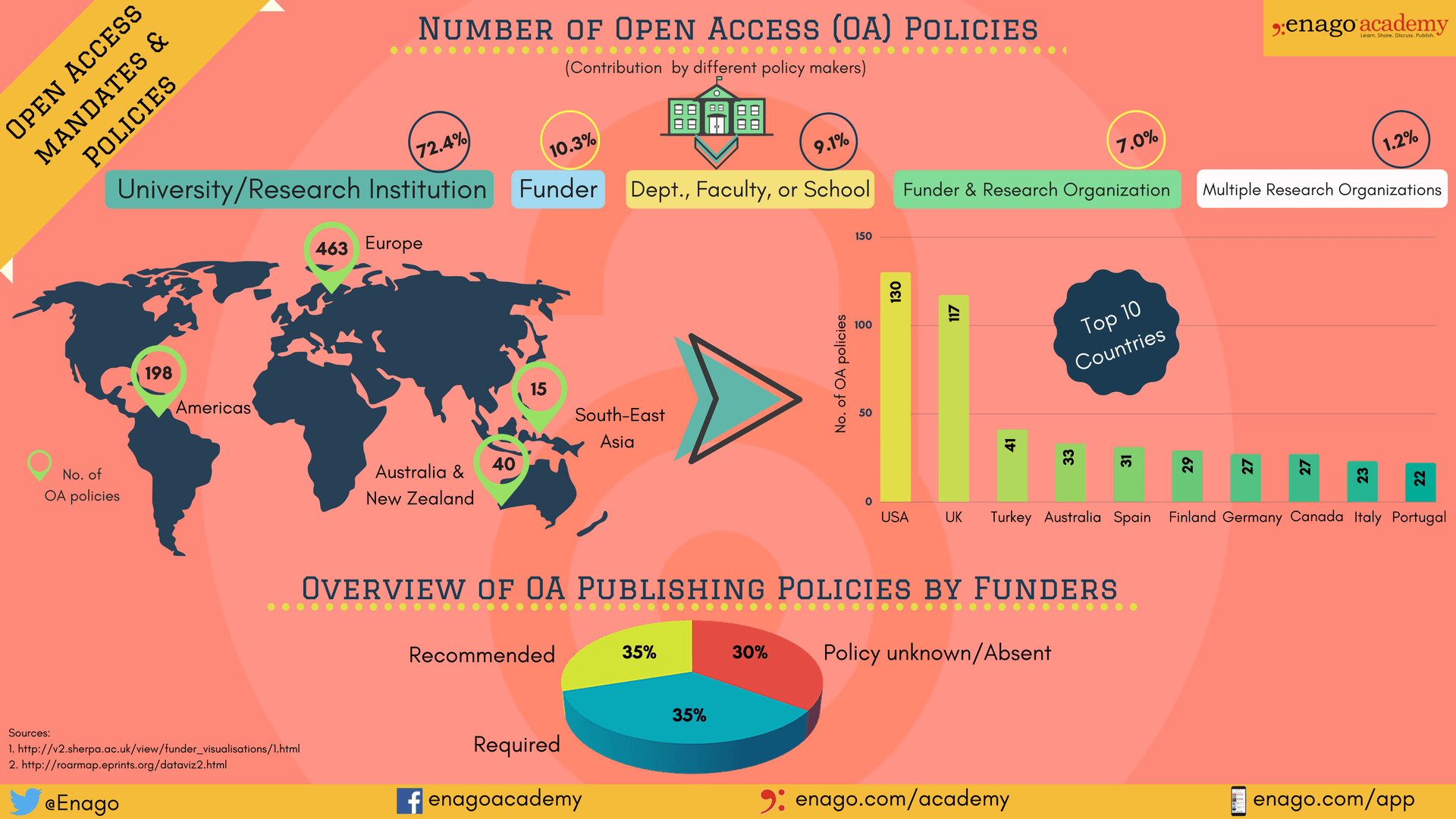Open Access Policies and Funding Agency Mandates

In the first infographic of the open access (OA) series, we shared the names of popular OA journals across different disciplines. However, the OA movement has more dimensions to it. Let’s explore!
The open access (OA) model has changed the dynamics of traditional publishing by providing access to view, share, and reuse research findings. With the development of OA variants such as gold APC, gold no-APC, and green OA, government organizations, research institutions, funders, and universities are not only promoting but also adopting OA policies. Moreover, several well-known funding bodies such as NIH, The Wellcome Trust, and the Bill & Melinda Gates Foundation have mandated open access to published materials.
Searchable databases such as the Registry of Open Access Repository Mandates and Policies (ROARMAP) and SHERPA/Juliet provide updated information on the growth of OA policies and funders’ OA requirements for researchers, libraries, and more. As the number of OA policies and mandates continues to increase, it has become equally important to monitor compliance with these mandates. This not only ensures fair use of public funds in research but also the wider dissemination of research findings for social benefits.
In this infographic, we present interesting statistics on the contribution to OA policies and mandates by different policymakers and regions.
In the last infographic of this OA series, we will share interesting insights on OA repositories.
(Click to enlarge this infographic)










